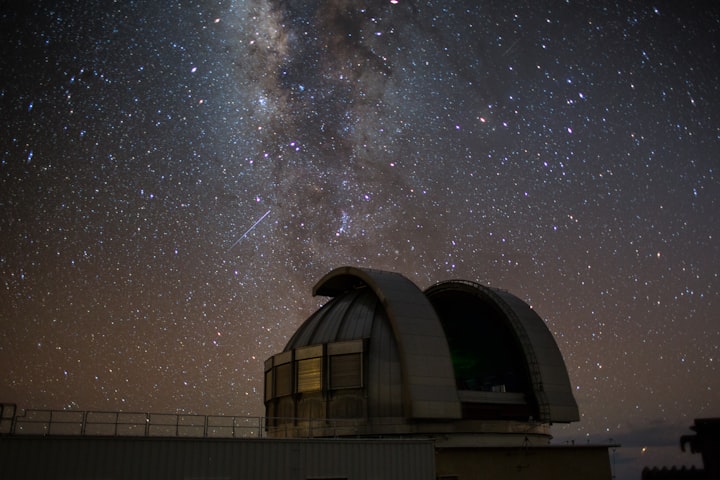
Introduction
The realm of astronomy is on the brink of a transformative era with the development of next-generation telescopes. These cutting-edge observatories, equipped with revolutionary technologies and unprecedented capabilities, hold the potential to revolutionize our understanding of the universe. This article explores the advancements and potential discoveries expected from the next generation of telescopes, paving the way for groundbreaking observations and unlocking the secrets of the cosmos.
Pushing the Limits of Observation
Next-generation telescopes are poised to push the boundaries of astronomical observations to unprecedented levels. By harnessing state-of-the-art technologies, these observatories offer enhanced sensitivity, spatial resolution, and spectral coverage. They are designed to capture fainter, more distant objects, observe with greater detail, and explore a wider range of wavelengths, enabling a deeper exploration of the universe.
Ground-Based Observatories: The Power of Giant Telescopes
Giant ground-based telescopes, such as the Extremely Large Telescopes (ELTs), are at the forefront of astronomical advancements. These behemoths feature enormous primary mirrors, advanced adaptive optics systems, and multi-wavelength capabilities. With their exceptional light-gathering capabilities and advanced imaging techniques, they will reveal intricate details of celestial objects, including exoplanets, distant galaxies, and the formation of stars and galaxies.
Space-Based Observatories: Peering into the Cosmic Depths
Space-based telescopes offer unparalleled advantages by observing above Earth's atmosphere, free from atmospheric distortions and light pollution. The James Webb Space Telescope (JWST), dubbed the successor to the Hubble Space Telescope, is set to revolutionize our understanding of the early universe, exoplanets, and the formation of stars and galaxies. Its infrared capabilities will enable observations of the faintest objects and unveil the secrets of cosmic origins.
Unraveling the Mysteries of Dark Matter and Dark Energy
Next-generation telescopes are crucial in unraveling the mysteries surrounding dark matter and dark energy. Projects like the Large Synoptic Survey Telescope (LSST) aim to conduct an all-sky survey, mapping billions of galaxies and tracing the distribution of dark matter. These observatories will provide vital data to understand the nature and properties of these enigmatic cosmic components, ultimately advancing our understanding of the universe's composition and evolution.
Hunting Exoplanets and the Search for Life
The search for exoplanets and signs of extraterrestrial life is a key focus of next-generation telescopes. Instruments like the Transiting Exoplanet Survey Satellite (TESS) and the upcoming European Space Agency's PLATO mission will continue to discover and characterize thousands of exoplanets, including potentially habitable worlds. Additionally, dedicated missions like the James Webb Space Telescope and ground-based observatories equipped with high-resolution spectrographs will examine exoplanet atmospheres for signs of habitability and even biosignatures.
Probing the Cosmic Dawn: Observing the First Stars and Galaxies
The birth of the first stars and galaxies represents a pivotal era in cosmic history. Next-generation telescopes, such as the Square Kilometre Array (SKA) and the Origins Space Telescope (OST), will peer back in time to observe the cosmic dawn. These observatories will study the first stars, galaxies, and black holes, shedding light on the processes that shaped the early universe and led to the formation of the structures we observe today.
Gravitational Wave Astronomy: A New Window to the Universe
The era of gravitational wave astronomy was inaugurated with the groundbreaking detections by LIGO and Virgo. The future holds even more remarkable possibilities as next-generation telescopes, including the Laser Interferometer Space Antenna (LISA), join the quest. LISA's space-based configuration will detect gravitational waves from supermassive black hole mergers, opening a new window to study the dynamics of the universe and the nature of gravity itself.
Advancements in Data Analysis and Artificial Intelligence
The deluge of data produced by next-generation telescopes necessitates advancements in data analysis techniques and the implementation of artificial intelligence (AI). Sophisticated algorithms and machine learning will play a crucial role in efficiently extracting meaningful insights from vast datasets, facilitating discoveries and enabling the exploration of the universe in unprecedented ways.
Conclusion
The next generation of telescopes represents a thrilling chapter in the field of astronomy, poised to revolutionize our understanding of the universe. Through their remarkable technological capabilities, these observatories will unveil cosmic secrets, ranging from exoplanets and the search for life to the mysteries of dark matter, the cosmic dawn, and gravitational wave events. As these groundbreaking telescopes come online, astronomers and scientists stand ready to embark on a new era of discovery, providing invaluable insights into the fundamental nature and origins of our vast cosmos.
About the Creator
Tatsuki
Space, Quantitative Finance, Crypto, Blockchain, Langurages, etc.
Personal Blog (Japanese): https://www.jinsei-100nenn.com/
AI Art Project: Space Cat AI (on Instagram)
Follow me:






Comments
There are no comments for this story
Be the first to respond and start the conversation.